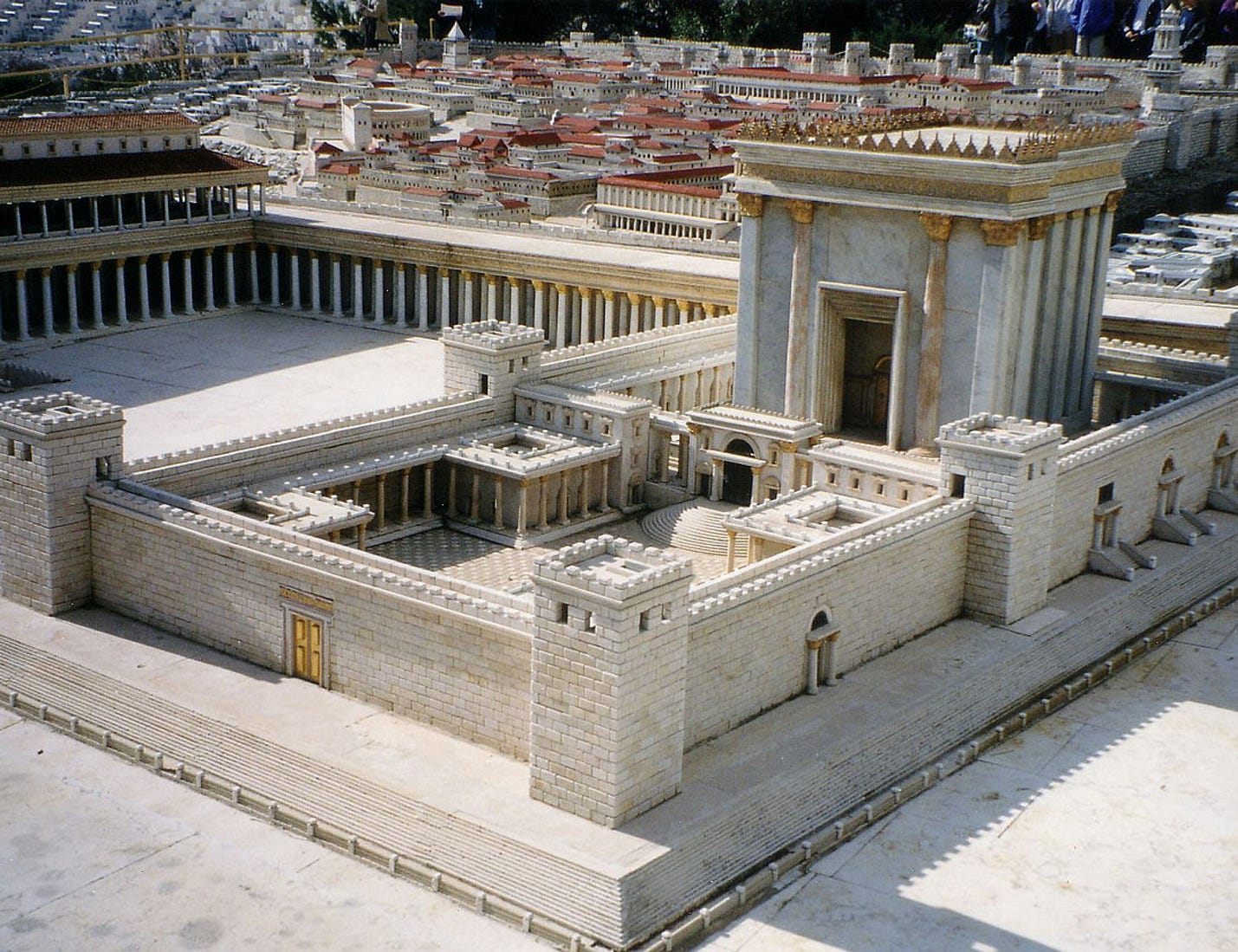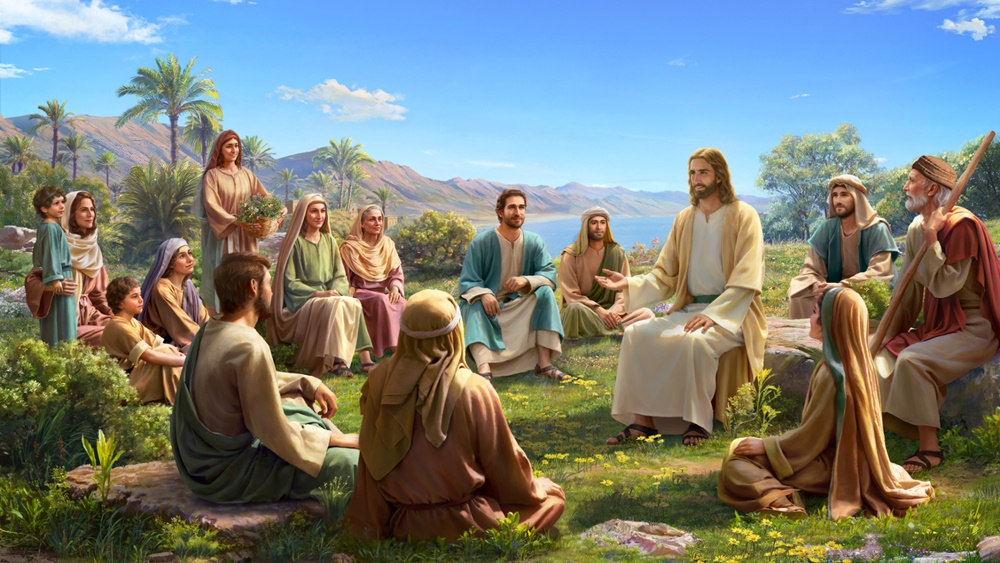Understanding the Role of Jesus in History: A Christian Reflection
The life and teachings of Jesus of Nazareth are foundational not just to Christian faith but to the broader historical and cultural development of the Western world. The central figure in the Christian religion emerged against the backdrop of the Roman Empire, a time and place deeply rooted in religious, political, and social dynamics. Yet, it was Jesus’s radical message of peace, love, and justice—coupled with his claims of divinity—that set him apart from other teachers and messianic figures of his time.
The Intersection of Judaism and Christianity
To understand Jesus’s significance, it’s essential to begin with his roots in Judaism. Jesus was born into a Jewish family and grew up within a culture that valued monotheism—belief in one True God. The Jews, or Hebrews, had a unique covenantal relationship with Yahweh, their God. Understanding the formation of this relationship is key to recognizing the revolutionary significance of Jesus’s role in history. As was recorded in Genesis 17, God promises Abraham a great nation: “And I will establish My covenant between Me and you and your descendants after you…” (Genesis 17:7, NKJV).
This covenant, along with the belief in a future Messiah, set the foundation for Jesus’s teachings and the future split between Judaism and Christianity. The Jewish longing for a Messiah who would bring renewal and justice lay at the heart of their identity under Roman rule.
During Jesus’s time, the province of Judea was under Roman control, leading to significant social, political, and economic tensions. The oppression of the Jewish people by rulers such as Herod and later Roman emperors kindled messianic hope. Various preachers and religious movements, including the Pharisees, Sadducees, Zealots, and others, sought different ways of returning Israel to God’s favor. In this context, Jesus emerged as a spiritual teacher but also as something more—someone who claimed an intimate relationship with God, whom he addressed as ‘Father’ (John 10:30).
The Radical Nature of Jesus’s Message
What stands out in Jesus’s life and message is how radically it called for transformation, not just of individual hearts, but of societal structures. His teachings on valuing the poor, advocating for peace, and embracing forgiveness were a threat to the Roman political forces of the time. In one teaching, He states, “Blessed are the meek, for they shall inherit the earth” (Matthew 5:5, NKJV), signaling a reversal of traditional power dynamics.
Moreover, His emphasis on social justice and moral righteousness resonated deeply with the oppressed and downtrodden. Jesus’s teachings emphasized that salvation was not just for the mighty or wealthy but particularly for the marginalized. As Matthew 19:24 records, “It is easier for a camel to go through the eye of a needle than for a rich man to enter the kingdom of God” (NKJV). This message resonated with many who saw no reflection of justice in the Roman system.
His teachings, however, attracted opposition. The idea of a poor Jewish carpenter being “the Son of God” was considered both blasphemous and politically dangerous in a Roman world where emperors were often deified posthumously and Augustus already bore the title “Son of God” on Roman currency.
Religious Significance and Prophecies
Many theological scholars point to prophetic traditions as strengthening the belief that Jesus was the promised Messiah. Jewish prophecies, such as those in Isaiah 53, described a figure who would suffer and bear the sins of humanity—characteristics Jesus’s followers saw revealed in his life and death. “He was despised and rejected by men, a man of sorrows and acquainted with grief” (Isaiah 53:3, NKJV). These passages seemed to align closely with Jesus’s experiences, leading many to conclude that He was indeed the anticipated Redeemer.
The Spread of Christianity: A Historical Perspective
Despite his crucifixion—a Roman method of executing insurgents and rebels—the influence of Jesus did not end with his death. The rise of Christianity is as much a historical subject as it is a spiritual one. The belief in Jesus’s resurrection significantly fueled the rapid growth of the Christian movement. After his death, his followers spread his teachings throughout the Roman Empire, most notably through the efforts of the apostle Paul. A Roman citizen by birth, Paul utilized his status and ability to move freely across Roman territories to spread the message of Jesus far beyond its Jewish roots, opening the religion to Gentiles (non-Jews).
Table: Key Events in Early Christian History
| Event | Date | Significance |
|---|---|---|
| Crucifixion of Jesus | c. 30-33 CE | Marked the central belief in Jesus’s sacrificial death and subsequent resurrection. |
| Paul’s Conversion | c. 33-36 CE | Paul’s conversion led to the spread of Christianity beyond Jewish populations. |
| Destruction of the Second Temple | 70 CE | Weakened Jewish nationalism and led to the Diaspora, transforming Christianity into a religion distinct from Judaism. |
| Constantine’s Conversion | 312 CE | Marked Christianity’s rise from a persecuted faith to the dominant religion of the Roman Empire. |
From Sect to Global Movement
One of the reasons that Christianity grew so dramatically after Jesus’s death was its appeal across various cultural and economic boundaries. At a time when Rome was in decline, its shifting political and social structures provided fertile ground for this new religious movement. It filled a gap by addressing spiritual and existential questions that Roman religion, with its pantheon of quarreling gods and lack of a promise of an afterlife, simply couldn’t answer.
Christianity’s promise of eternal life and the notion of divine justice for the oppressed resonated deeply. Coupled with the missionary work of apostles like Paul and the support of key Roman figures such as Emperor Constantine, Jesus’s teachings expanded from a small Jewish sect to a global religion, shaping entire civilizations. The Christian concept of an everlasting kingdom—free from death, suffering, and injustice—began to find not just spiritual fulfillment but historical influence in laws and governance across the Roman Empire and beyond.
Concluding Thoughts
The life and teachings of Jesus, as historical and religious traditions show, represented a radical challenge to both the religious and political status quo. Daring to call himself the Son of God in the face of Roman civil authority—and bolstered by Jewish prophecies pointing to a Messiah—Jesus’s message transcended its immediate cultural and historical context. The growth of Christianity from a small movement of disciples to a global faith shows the enduring power of his teachings and the historical significance of this unparalleled figure.
As we continue to reflect on Jesus’s life and its religious and historical implications, we are reminded of his message’s relevance, not only for first-century Jews but for people across centuries, seeking meaning, justice, and redemption in a troubled world.
Focus Keyphrase: Role of Jesus in History





The article does an excellent job of not only stressing the historical significance of Jesus but also highlighting the depth of his teachings. It helps place everything in a broader perspective, offering much-needed clarity about his enduring relevance across centuries.
This article offers a thoughtful reflection on how both the religious and historical contexts of Jesus’s life contributed to the growth of Christianity.